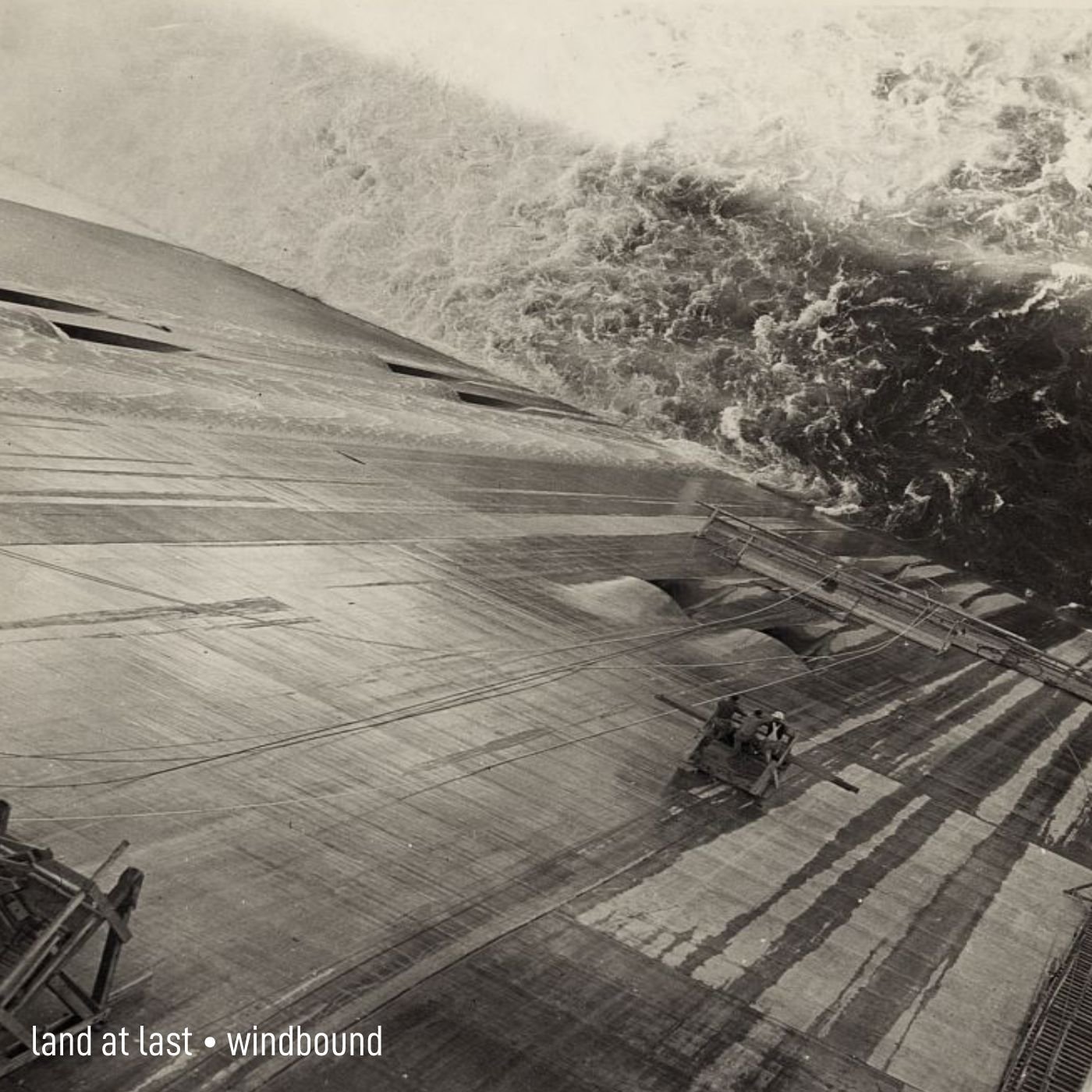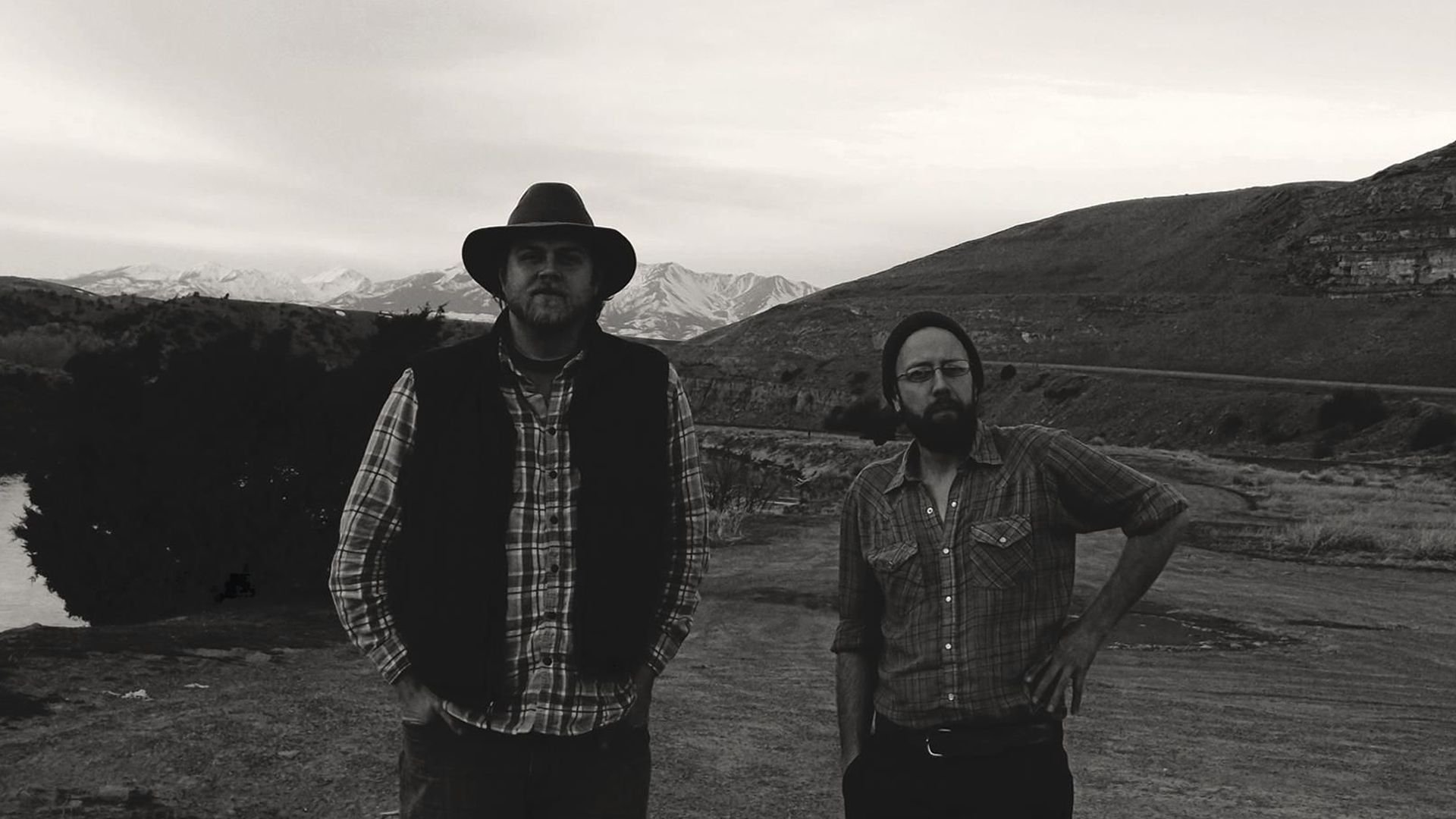Music Review: Land at Last, ‘Windbound’
Minnesota superduo Jake Ilika and Mike Munson join forces on a new, surprisingly multilayered EP.
I’d encountered the music of Jake Ilika and Mike Munson separately in the past. I remembered Ilika as a folk singer-songwriter with warm, quietly resonant vocals and expressive acoustic guitar. Mike Munson’s sets (I’ve usually seen him with Twin Cities washboard mainstay Mikkel) are memorable to me for his somewhat experimental electric guitar mixed with more traditional country blues.
I wasn’t sure what to expect when I learned they’d teamed up to form the group Land at Last and made Windbound, an EP they recorded “masked and safely distanced” last winter and which came out October 15. It’s not that their styles are polar opposites, but they were different enough in my memory that I wondered how they’d meld together.
When I played it through the first time, it just kind of swept over me in a kind of blissful wave. My main impression was that it was startlingly beautiful, the kind of music that almost tastes good, it’s so pleasing to the ears. Gone were any questions about whether the two would create a cohesive sound. They’d made magic together.
On subsequent listenings, I was able to focus on individual songs more and appreciate them as separate entities. For a record that feels so harmonious, the tracks are actually quite diverse and distinct from one another. They also manage to showcase Munson’s and Ilika’s unique talents without taking away from the overall cohesion, which is quite an achievement for two standout acts.
The first track, “Astronomer,” opens with Ilika’s trademark cascade of acoustic fingerpicking, soon joined by Munson’s electric guitar, weaving in and out, speaking to the melody in a way that reminds me of how a fiddle might be used. Then Ilika’s voice comes in, not replacing the acoustic guitar but joining it in singing the melody, a technique that always gives me shivers. The lyrics are simple and sparse, about a moonlit night and falling in love, though there’s a touch of the gothic in the images of moon and hills and clouds and Ilika following up “I knew I’d love you til the day I die” with “Til there’s nothing left but bones lying underneath the stones.” Munson’s electric solo and accompaniment throughout is perfection, sweet and romantic and a little spooky in the way it explores and expands the edges of the simple lilting melody.
Munson takes a turn opening the next song, “Sky,” with a single reverb-rich strum, and Ilika jumps in with percussive acoustic guitar that’s half strumming, half picking. While he maintains an uptempo pace, Munson’s electric ponders notes in a leisurely, daydreamy way, letting them echo and linger as they float along atop the rhythmic acoustic. This instrumental meditation is surprisingly short, less than two minutes, but creates a remarkably expansive landscape for the listener to experience whatever emotion it elicits for them.
The next track, “Superman,” showcases both artists’ fingerpicking skills, and the combination of acoustic and electric notes, sometimes blending together and sometimes more syncopated, is entrancing. Munson sings lead on this one, with Ilika providing occasional harmonies. The lyrics tell a cryptic story of a larger-than-life man’s impression on the people around him. Whether it’s a fantastical tale of a superhero, a heavily metaphorical song about a real-life hero (or former hero), or a rumination on the unrealistic way people idealize someone they admire, it’s an unassumingly powerful and thought-provoking song.
“Winter So Long” starts out like every Minnesotan’s mind around late January, early February, when it feels like it’ll never be warm again: “Winter so long I lost my mind / Scattered in the snow / Everybody’s cold.” Ilika’s voice sounds calm and resigned over a steady acoustic guitar rhythm through several verses like that, as Munson’s electric guitar, at its most idiosyncratic in this short EP, emits high, plaintive notes here and there.
Then, just as you’re firmly ensconced in this endless chill, the lyrics take a turn, though Ilika delivers them in the same incantational way as all the others: “Remember though the winter’s so long / Spring always comes along / And sings a glorious song.” The song continues for another minute, wordlessly, and Munson’s curious electric line above the rhythm somehow sounds hopeful instead of mournful, as if looking ahead with new optimism.
That echoey reverb from “Sky” returns for the final track, “Going Down.” The first half of the song features Munson’s vocals and guitar, with a little bit of backup from Ilika’s acoustic. It’s got a slow, lazy, soulful tempo and could be a love song, though the lyrics again are open for interpretation. The song seems like it’s coming to an end, and then Ilika picks up the pace, Munson’s guitar takes on the same exploratory air as it did in “Sky,” and they continue like that for another two minutes or so, ending the song—and the EP—as unexpectedly as this long instrumental segment began.
Writing this all down, I realize just how eclectic this short little record is, and I’m even more surprised that it sounded so cohesive on first listen. It still does, but the closer you listen, the more it starts to sound like a deep conversation between two equally talented artists, and the more little surprises, twists and turns there are to discover. I hope I get to experience this unusual duo live sometime, though I don’t see any events coming up. At least you can buy and enjoy Windbound in the meantime!
Carol Roth is a full-time marketing copywriter and the main music journalist and social media publicist for Adventures in Americana. In addition to studying the guitar and songwriting, Carol’s additional creative side hustle is writing self-proclaimed “trashy” novels under the pseudonym @taberkeley!


